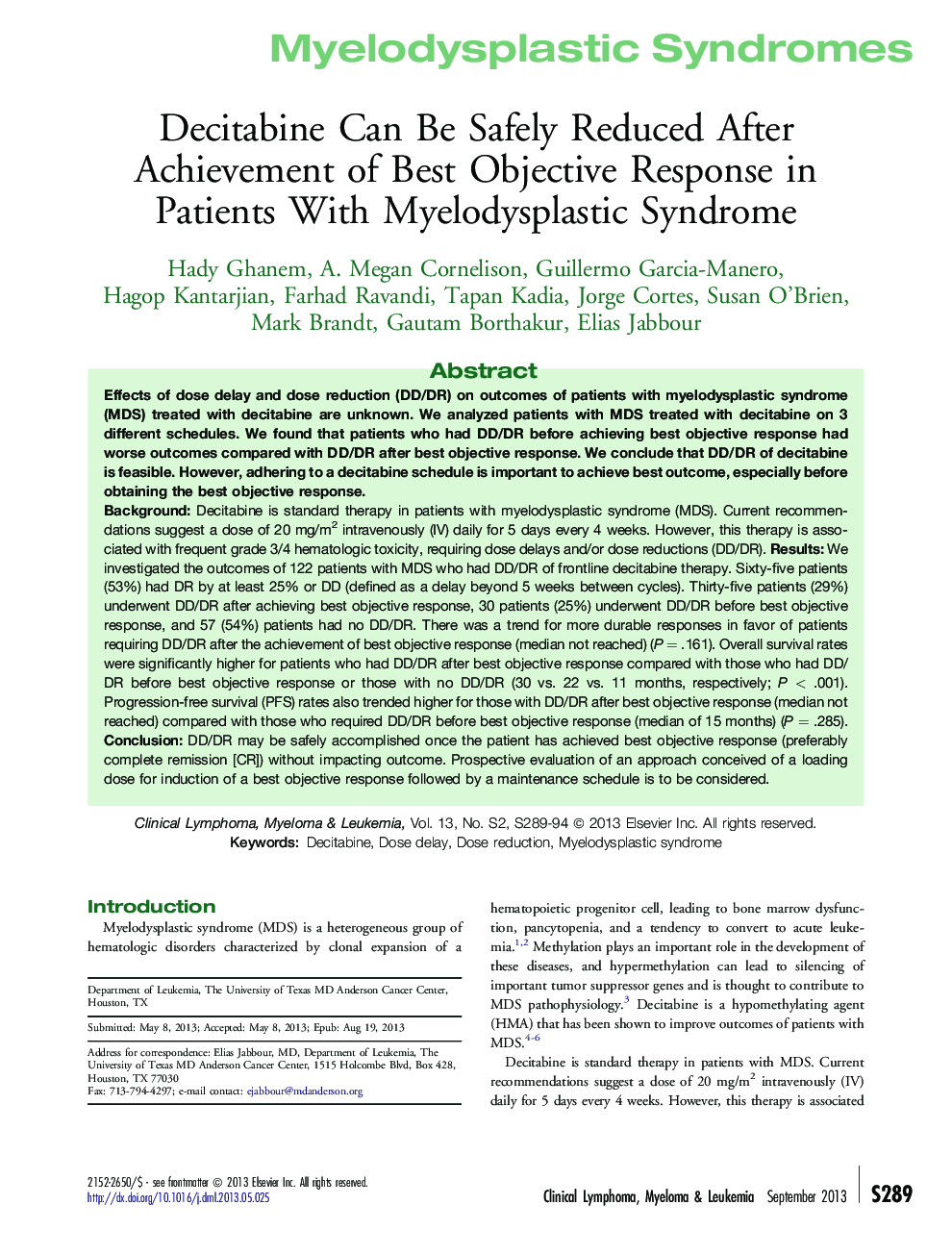| Article ID | Journal | Published Year | Pages | File Type |
|---|---|---|---|---|
| 2755029 | Clinical Lymphoma Myeloma and Leukemia | 2013 | 6 Pages |
BackgroundDecitabine is standard therapy in patients with myelodysplastic syndrome (MDS). Current recommendations suggest a dose of 20 mg/m2 intravenously (IV) daily for 5 days every 4 weeks. However, this therapy is associated with frequent grade 3/4 hematologic toxicity, requiring dose delays and/or dose reductions (DD/DR).ResultsWe investigated the outcomes of 122 patients with MDS who had DD/DR of frontline decitabine therapy. Sixty-five patients (53%) had DR by at least 25% or DD (defined as a delay beyond 5 weeks between cycles). Thirty-five patients (29%) underwent DD/DR after achieving best objective response, 30 patients (25%) underwent DD/DR before best objective response, and 57 (54%) patients had no DD/DR. There was a trend for more durable responses in favor of patients requiring DD/DR after the achievement of best objective response (median not reached) (P = .161). Overall survival rates were significantly higher for patients who had DD/DR after best objective response compared with those who had DD/DR before best objective response or those with no DD/DR (30 vs. 22 vs. 11 months, respectively; P < .001). Progression-free survival (PFS) rates also trended higher for those with DD/DR after best objective response (median not reached) compared with those who required DD/DR before best objective response (median of 15 months) (P = .285).ConclusionDD/DR may be safely accomplished once the patient has achieved best objective response (preferably complete remission [CR]) without impacting outcome. Prospective evaluation of an approach conceived of a loading dose for induction of a best objective response followed by a maintenance schedule is to be considered.
